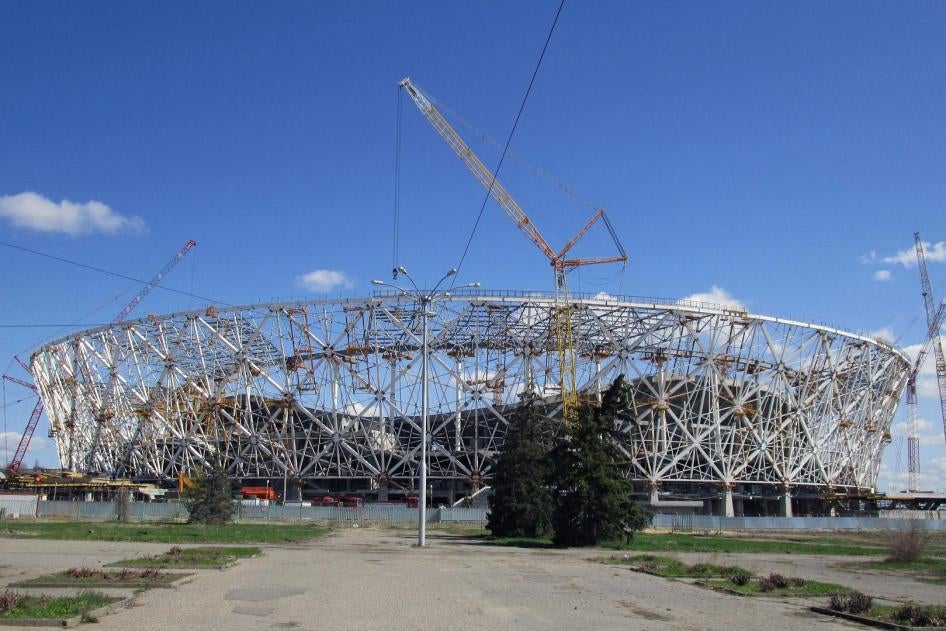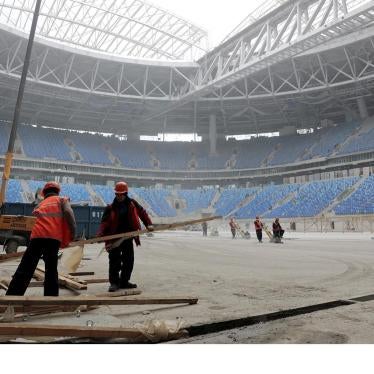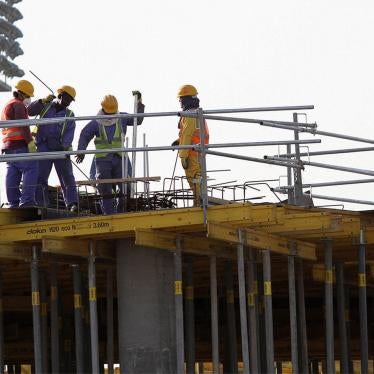We have seen an avalanche of documents addressing human rights this year from the Fédération Internationale de Football Association, the powerful global football federation known by its acronym FIFA. That makes sense considering that FIFA chose Russia and Qatar – countries with serious human rights problems – as hosts of the 2018 and 2022 World Cups.
This month, FIFA published a report by its new Human Rights Advisory Board identifying serious risk areas for human rights abuses including in Russia. In June, FIFA published a new Human Rights Policy promising rights protections across its global operations. FIFA has also set important new human rights bid requirements for the 2026 World Cup, and included human rights responsibilities in article 3 of its statutes. Human Rights Watch has long pressured FIFA and sponsors to put human rights at the center of operations, and these are important and overdue steps.
Sunday marks the 200-day countdown to the opening of football’s World Cup in 11 cities across Russia. But with the countdown to the June 2018 tournament in Russia underway, and with serious abuses occurring, FIFA’s human rights publications are piling up, but the human rights progress is not.
In June, the Human Rights Watch report, “Red Card”, documented how workers on six World Cup stadium construction sites in Russia faced unpaid wages, failure to provide contracts, and unsafe working conditions. Police in Volgograd detained and threatened a Human Rights Watch researcher. In Kaliningrad, a journalist known for exposing corruption, including related to World Cup construction, was recently beaten by police, arrested, and now faces criminal charges.
The global trade union Building and Woodworkers International (BWI) documented 20 worker deaths on Russia World Cup stadium sites – including three deaths since June.
FIFA has agreed to respect the UN Guiding Principles on Business and Human Rights, but is falling short.
For example, the media found forced labor by North Korean workers in the St. Petersburg Arena, including one worker who died. FIFA has not answered queries about where they are, or whether they were paid.
With construction in Russia entering the crucial final phases, the risk is that danger to workers will escalate with companies taking hazardous shortcuts or forcing workers to work around the clock to meet the fast approaching deadline of the opening ceremony.
Fans should not have to sit in stadiums that workers were enslaved or even died to build. With the clock ticking, FIFA needs to move beyond reports, and take concrete steps to make things right.








